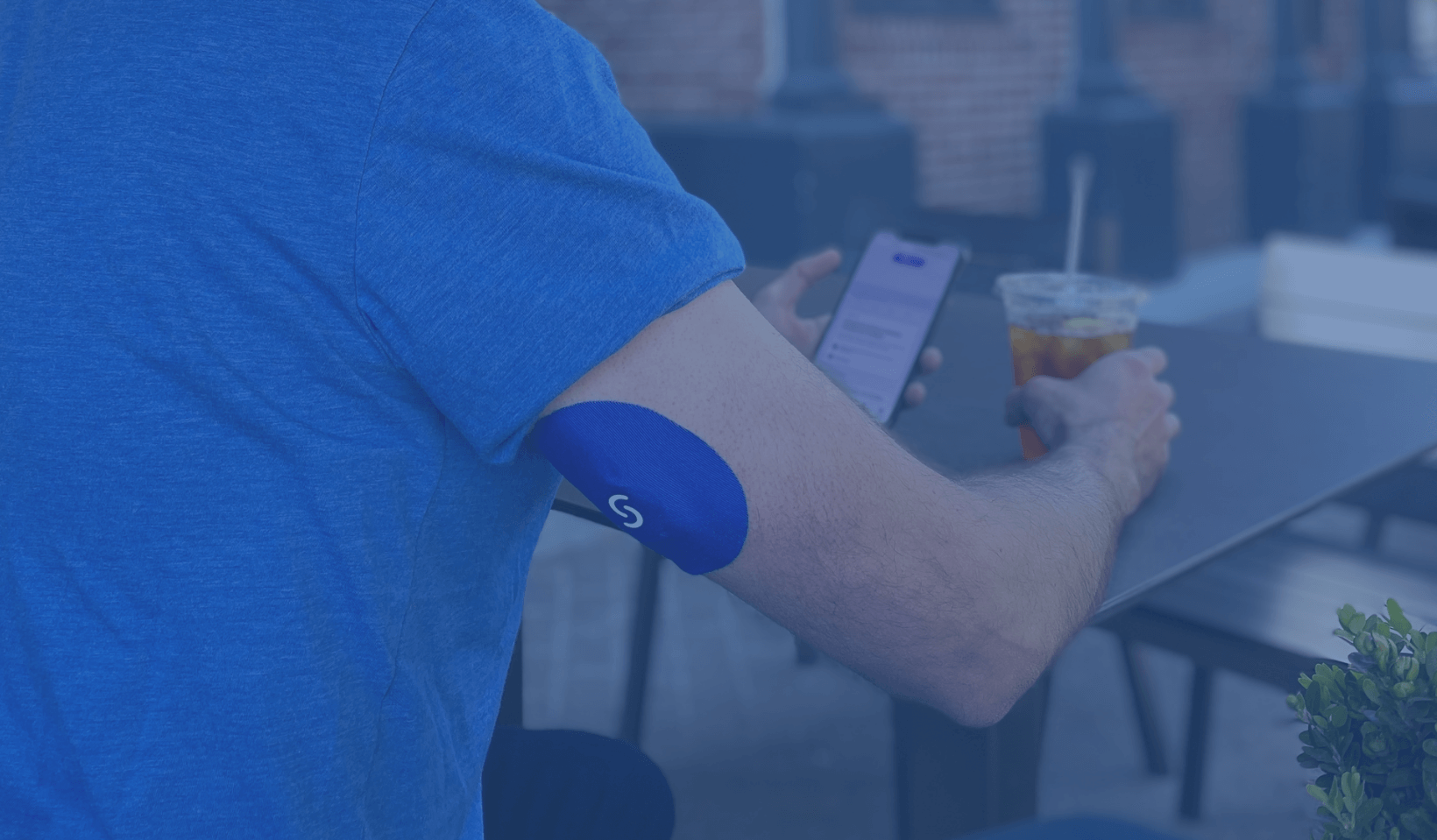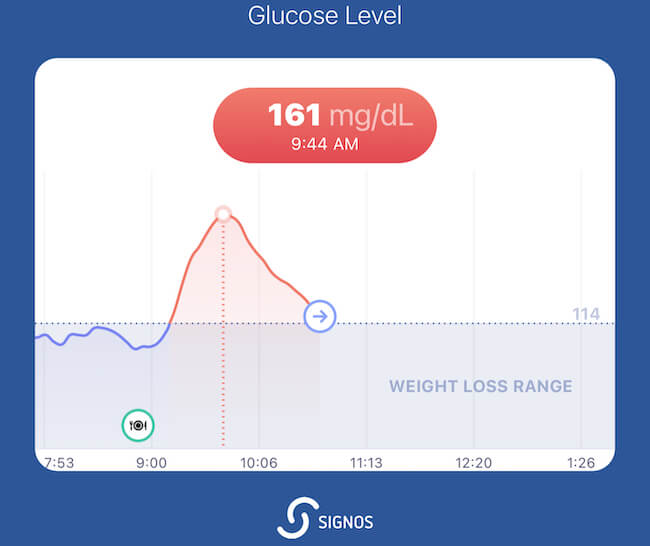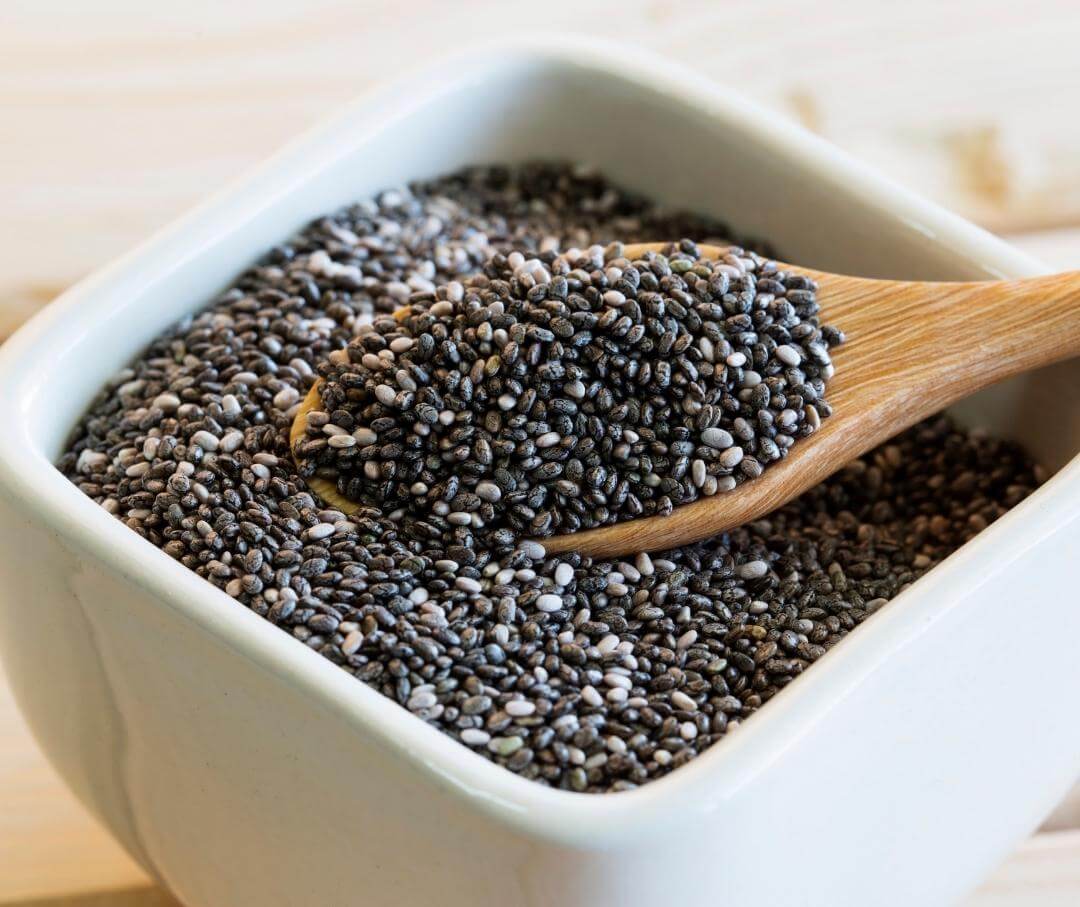Can Vitamin C Throw Off Blood Glucose Readings?
Ascorbic acid (vitamin C) is one of the top 10 most popular oral supplements taken by Americans.1 It is a powerful antioxidant that supports your immune system and is linked to skin integrity and wound healing.2 Vitamin C is regularly prescribed for people who are recovering after cancer treatments, people who are healing after surgery, who have suffered severe burns or viral infections, and chronic fatigue syndrome.
Since 2016 there have been multiple studies investigating how vitamin C can possibly interfere with the accuracy of blood glucose readings.
As personal health technology, and the use of CGMs become more popular, it is critical to understand and mitigate any potential barriers to accurate blood glucose readings.
<p class="pro-tip"><strong>Learn more about </strong><a href="/blog/what-is-a-continuous-glucose-monitor">how CGMs work</a></p>
Study Review: Influence of Vitamin C on Glucose Readings
A study published in 2016 investigated the link between vitamin C and the results provided by three popular glucometers. The team of physicians leading the study was specifically interested in ascorbic acid and maltose (a sugar molecule made from two joint glucose molecules), and their possible impact on the accuracy of three different glucometers.3
Focus of Study
This study was conducted to define the impact vitamin C and maltose molecules have on the accuracy of readings by a fingerstick glucometer.
Ascorbic acid is theorized to cause high blood glucose readings, which can mask a low blood sugar alert. For certain people, such as those suffering from diabetes, missing a low sugar alert can be fatal.
Maltose naturally increases in patients who complete peritoneal dialysis, which is a common form of treatment for kidney disease. These individuals rely on accurate data from glucometers to manage their health.
Breakdown of the Approach
Three CGM devices were tested: Accu-Chek Inform, Starstrip, and Barozen H Plus.
Glucose was added to three samples of whole blood in a lab. The samples had glucose concentrations of 60, 126, or 300mg/dL. 3mL of vitamin C or maltose was added to each sample.
The goal was to measure how well the devices accurately measured glucose readings from the blood samples. There were also three control samples with the same glucose levels but no vitamin C added. Duplicate rounds of testing were completed for each device and each sample.

Results
The results showed significant differences in glucose readings as the vitamin C concentration increased. A person taking a high-dose vitamin C supplement may experience over-reported glucose readings, which may vary depending on the testing device they are using.
None of the glucose readings were adversely affected by the presence of maltose.
Low Blood Glucose Findings
At a low glucose concentration (30mg/dL) with 3mg/dL of vitamin C, all the devices reported blood glucose concentrations within 15% of the control measure. This accuracy score is considered a pass within the study.
After increasing the vitamin C to 15mg/dL and then 30mg/dL, the Roche Accu-Chek sensor overreported the glucose concentrations by 55% and 100%. The other two glucometers were within the target range.
Medium Blood Glucose Findings
At medium glucose concentration (126mg/dL) with 3mg/dL of Vitamin C, Nova Startstrip underreported the blood glucose reading by approximately 20%. The other two glucometers satisfied the benchmark and passed.
Upon increasing the vitamin C concentration to 15mL and then 30mL, the Roche Accuchek again over reported the glucose findings. The findings were 23% and 44% above the true value.
High Blood Glucose Findings
At high glucose concentrations (300mg/dL) with 3mg/dL of vitamin C, all three devices reported findings within 15% of the baseline tool.
Increasing the vitamin C concentration to 15mL only affected the accuracy of Starstrip, which underreported the glucose concentration by 15%.
In the 30mL of vitamin C test, only the Roche Accu-Chek device was affected, and it overreported the glucose readings by 20%.
<p class="pro-tip"><strong>Learn more about </strong><a href="/blog/average-glucose-ranges">normal blood glucose levels for people without diabetes</a></p>
{{mid-cta}}
Study Strengths
Repeat testing is critical to strengthening the findings in any scientific study. Duplicate testing was completed in this quantitative study to ensure the results and readings were repeatable, making them statistically significant.
Many variables were tested against each other. For example, testing the glucose readings against varying concentrations of vitamin C covers a wide range of data that could occur in real-life settings.
A chemical analyzer was used as a control. It provided benchmark glucose readings that the readings from the glucometers were compared to. At the start of every test, the control was used to ensure the blood samples were at the designated glucose level.
<p class="pro-tip"><strong>Learn more about </strong><a href="/blog/blood-sugar-weight-loss">tracking glucose for weight loss</a></p>
Study Limitations
A limitation of the study is the number and type of devices tested against each other. Three different glucometers were selected based on their technology. They all use slightly different chemical agents and enzymes to complete glucose readings. It would be more helpful to create an apples-to-apples comparison by testing and comparing devices that use the same technology.
As an example, the Starstrip glucometer relies on modified glucose oxidase. A meaningful follow-up study would compare it to other devices that use the same chemical reaction.
Using blood tests from an assay is a sterile approach to blood testing that is not comparable to real life. Many factors can influence blood sugar levels hourly and daily, so there will always be some debate whether the results produced in a laboratory setting will be the same for human subjects.

Appropriateness of Research Methods
The methods used in the study were appropriate. The findings are statistically significant and it certainly warrants more research into this topic.
It is unlikely people will scale back their vitamin C intake because it is a popular therapeutic recommendation. There is demand for a blood glucose meter that will provide consistently high levels of accuracy in the presence of high-dose vitamin C supplementation.
Additional Study Confirms Vitamin C Findings In CGMs
Abbott is an American company that manufactures a CGM called the Freestyle Libre. They have conducted their own research into the effect of vitamin C on the accuracy of the Freestyle Libre CGM device and reported similar findings: ascorbic acid appeared to interfere with the accuracy of their CGM devices.4 They recommend keeping ascorbic acid intake below 500mg per day.
Abbott recognizes a gap in their evidence is the lack of knowledge about the absorption rate of vitamin C in each person. A glass of orange juice has approximately 150mg of vitamin C, but how much of that is truly absorbed? A second important question is whether vitamin C from food sources and supplements is absorbed differently, and that might impact CGM performance. All these questions beg further research into the relationship between vitamin C and CGM accuracy.
<p class="pro-tip"><strong>Learn more about </strong><a href="/blog/vitamins-and-minerals-weight-loss">vitamins, minerals and weight loss</a></p>
Researchers are interested in creating some type of chemical agent to protect the enzymes and chemicals used in a CGM device against high levels of vitamin C. Testing will need to be done to make sure these agents perform well without unwanted side effects.
Can Anything Else Impact The Accuracy of a CGM Device?
Acetaminophen and hydroxyurea are two other substances that can impact the accuracy of a CGM device.4 Acetaminophen is a pain reliever found in Tylenol and other brands, and hydroxyurea is a drug commonly used in chemotherapy.
Both of these medications are known to affect the Dexcom glucose sensor. Medtronic (another CGM company) released a statement in 2021 noting their sensor readings of blood glucose levels were falsely elevated in the presence of acetaminophen.4
Vitamin C Supplements May Impact The Accuracy of CGM Readings
It appears that high concentrations of vitamin C can impact the accuracy of a CGM, and results may vary depending on which device you use. The National Institute of Health classifies high vitamin C intake as above 2000mg per day.5
If a high-dose vitamin C supplementation is part of your current health care plan, you may want to ask your provider if there are alternative options available. If vitamin C intake can not be halted or decreased, you may want to change to a CGM device that is more reliable in the presence of high levels of vitamin C.
Study your long-term blood glucose data trends. If your rising glucose levels can’t be explained by diet, exercise, or changes to your sleep schedule, and you have also started to supplement with vitamin C, the glucose sensor might be compromised.
To ensure your CGM functions properly, always follow the manufacturer's instructions. Make sure the device is implanted appropriately, and avoid wearing it for longer than 10 days.
For Signos Members
How does vitamin C affect your readings? Try this simple seven-day experiment: supplement with vitamin C supplement for one week.
- Days 1-7: record your waking glucose, then supplement with vitamin C
- Look at the changes in your waking glucose readings after a week of taking vitamin C.
If you’re a Signos member, share your results with the Signos Community on Facebook.
<p class="pro-tip">Read Next: Blood Glucose Accuracy: CGMs vs. Fingerstick Glucometers</p>
- Item 1
- Item 2
- item 3
Topics discussed in this article:
References
- Products - Data Briefs - Number 399 - February 2021. (2021, February). Dietary Supplement Use Among Adults: United States, 2017–2018. Retrieved June 2022, from https://www.cdc.gov/nchs/products/databriefs/db399.htm
- Moores J. (2013). Vitamin C: a wound healing perspective. British journal of community nursing, Suppl, S6–S11. https://doi.org/10.12968/bjcn.2013.18.sup12.s6
- Cho, J., Ahn, S., Yim, J., Cheon, Y., Jeong, S. H., Lee, S. G., & Kim, J. H. (2016). Influence of Vitamin C and Maltose on the Accuracy of Three Models of Glucose Meters. Annals of laboratory medicine, 36(3), 271–274. https://doi.org/10.3343/alm.2016.36.3.271
- Heinemann, L. (2021). Interferences With CGM Systems: Practical Relevance? Journal of Diabetes Science and Technology, 16(2), 271–274. https://doi.org/10.1177/19322968211065065
- National Institute of Health. (2021, March). Office of Dietary Supplements - Vitamin C. Vitamin C Fact Sheet For Health Professionals. Retrieved June 2022, from https://ods.od.nih.gov/factsheets/VitaminC-HealthProfessional/#h19




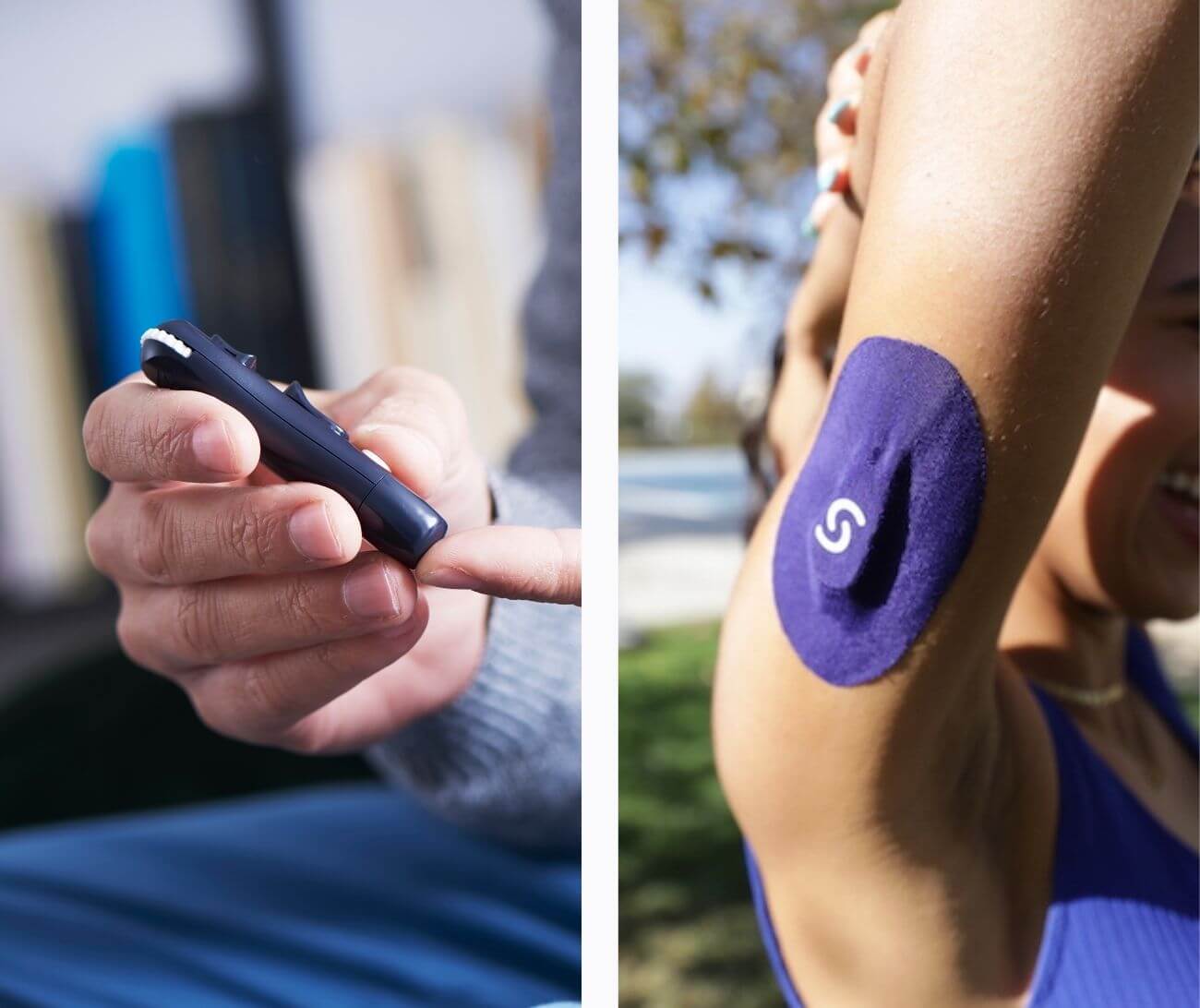
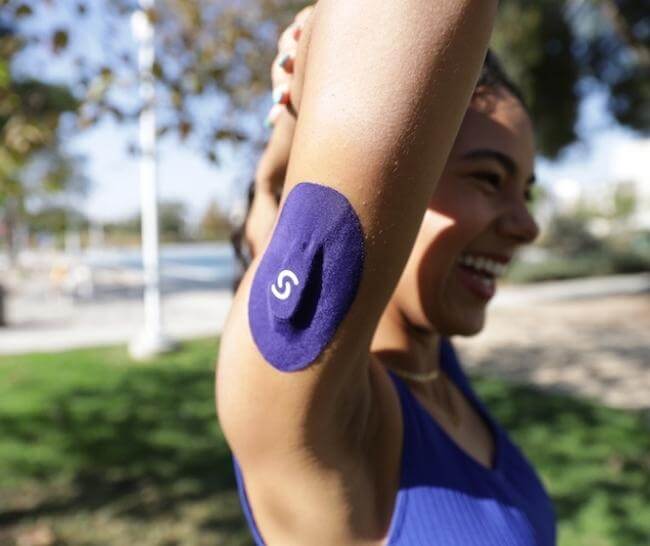
.jpg)
